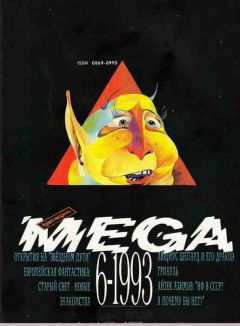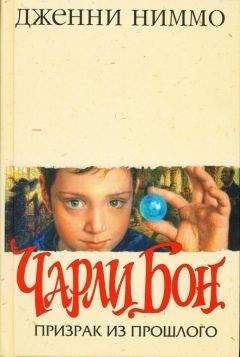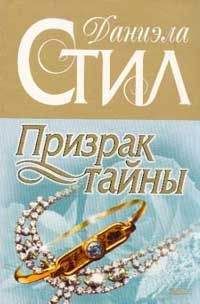Ася Казанцева - Как мозг заставляет нас делать глупости
5 Everly G. S., Lating J. M. A Clinical Guide to the Treatment of the Human Stress Response, 3rd Edition. — Springer Science + Business Media, New York, 2013.
6 Fruhman G. J., Gordon A. S. Effects of Growth Hormone and Cortisol upon Hemopoiesis // Acta Haematologica. 1956. Vo l. 15. P. 249–262.
7 Marazziti D., Canale D. Hormonal changes when falling in love // Psychoneuroendocrinology. August 2004. Vol. 29. No. 7. P. 931–936.
8 Kirschbaum C. et al. The «Trier Social Stress Test» — A Tool for Investigating Psychobiological Stress Responses in a Laboratory Setting // Neuropsychobiology. 1993. Vol. 28. P. 76–81.
9 Kirschbaum C. et al. Impact of Gender, Menstrual Cycle Phase, and Oral Contraceptives on the Activity of the Hypo-
thalamus-Pituitary-Adrenal Axis // Psychosomatic Medicine. 1 March 1999. Vol. 61. No. 2. Р. 154–162.
10 Qin S. et al. Acute Psychological Stress Reduces Working Memory-Related Activity in the Dorsolateral Prefrontal Cortex // Biological Psychiatry. 1 July 2009. Vol. 66. No. 1. P. 25–32.
11 B oh u s B. e t a l. Physiology of Stress: A Behavioral View / / Current Topics in Veterinary Medicine and Animal Science. 1987. Vol. 42. Р 57–70.
12 Friedman M. et al. Development of an Objective Psychological Test for the Determination of the Coronary-Prone Behavior Pattern in Employed Men // Journal of Chronic Diseases. June 1967. Vol. 20. No. 6. P. 371–379.
13 Pilia G. et al. Heritability of Cardiovascular and Personality Traits in 6,148 Sardinians // PLoS Genetics 2006. 2 (8): e132.
14 http://trv-science.ru/2013/01/15/vliyanie-gormonov-na-povedenie/ — интервью с Дмитрием Жуковым, частично посвященное реакции на стресс типа А (бегство и борьба)
и типа Б (замирание).
Глава 11. Как превратить живого человека в тыкву
1 Milgram S. Behavioral Study of Obedience // Journal of Abnormal and Social Psychology. 1963. Vol. 67. No. 4. Р. 371–378.
2 http://www.prisonexp.org/ — официальный сайт Стэнфордского эксперимента.
3 http://libcom.org/history/the-third-wave-1967-account-ron-jones — эссе Рона Джонса о Третьей волне.
4 Cohen S. et al. Psychological Stress and Susceptibility to the Common Cold // The New England Journal of Medicine. August 1991. Vol. 325. No. 9. Р. 606–612.
5 Mourtzoukou E. G., Falagas M. E. Exposure to Cold and Respiratory Tract Infections // The International Journal of Tuberculosis and Lung Disease. September 2007. Volume 11. No. 9. P. 938–943.
6 Glaser R. Stress-Associated Immune Dysregulation and Its Importance for Human Health: A Personal History of Psychoneuroimmunology // Brain, Behavior, and Immunity. January 2005. Vol. 19. No. 1. P. 3–11.
7 Vesely M. D. et al. Natural Innate and Adaptive Immunity to Cancer // Annual Review of Immunology. April 2011. Vo l. 29. Р. 235–271.
8 Vissoci Reiche E. M. et al. Stress, Depression, the Immune System, and Cancer // The Lancet Oncology.October 2004. Vol. 5. No. 10. P. 617–625.
9 Stojanovich L. Stress and Autoimmunity // Autoimmunity Reviews. 5 March 2010. Vol. 9. Issue P. A271–A276.
10 Dube S. R. et al. Cumulative Childhood Stress and Autoimmune Diseases in Adults // Psychosomatic Medicine. February March 2009. Vol. 71. No. 2. Р. 243–250.
11 Kodama A. et al. Effect of Stress on Atopic Dermatitis: Investigation in Patients after the Great Hanshin Earthquake // Journal of Allergy and Clinical Immunology. July 1999. Vol. 104. No. 1. P. 173–176.
12 Montoro J. et al. Stress and Allergy // Journal of Investigational Allergology and Clinical Immunology. 2009. Vol. 19. Suppl. 1. Р. 40–47.
13 Elen kov I. J. Glucocorticoids and the Th1/ Th2 Balance / / Annals of the New York Academy of Sciences. June 2004. Vo l. 1024, Glucocorticoid Action: Basic and Clinical Implications. June 2004. Р. 138–146.
14 Sommershof A. et al. Substantial Reduction of Naive and Regulatory T Cells Following Traumatic Stress // B r a i n, Behavior, and Immunity. November 2009. Vol. 23. No. 8. P. 1117–1124.
15 Rook G. A. W., Brunet L. R. Microbes, Immunoregulation, and the Gut // Gut. March 2005. Vol. 54. No. 3. P. 317–320.
16 Summers R. W. et al. Trichuris suis Therapy in Crohn’s Disease // Gut. January 2005. Vol. 54. No. 1. P. 87–90.
17 Kalantaridou S. N. et al. Stress and the Female Reproductive System // Journal of Reproductive Immunology. June 2004. Vol. 62. No. 1–2. P. 61–68.
18 Ahn T. Y. et al. Prevalence and Risk Factors for Erectile Dysfunction in Korean Men: Results of an Epidemiological Study // The Journal of Sexual Medicine. September 2007. Vo l. 4. No. 5. P. 1269–1276.
19 Moore T. M. et al. Erectile Dysfunction in Early, Middle, and Late Adulthood: Symptom Patterns and Psychosocial Correlates // Journal of Sex & Marital Therapy. October — December 2003. Vol. 29. No. 5. P. 381–399.
20 Kalantaridou S. N. et al. Corticotropin-Releasing Hormone, Stress and Human Reproduction: an Update // Journal of Reproductive Immunology. May 2010. Vol. 85. No. 1. P. 33–39.
21 Ward C. O. et al. Teratogenic Effects of Audiogenic Stress in Albino Mice // Journal of Pharmaceutical Sciences. November 1970. Vol. 59. No. 11. Р. 1661–1662.
22 Mulder E. J. H. et al. Prenatal Maternal Stress: Effects on Pregnancy and the (Unborn) Child // Early Human Development. December 2002. Vol. 70. No. 1–2. P. 3–14.
23 Bray G. A. Reciprocal Relation between the Sympathetic Nervous System and Food Intake // Brain Research Bulletin. September — October 1991. Vol. 27. No. 3–4. P. 517–520.
24 Monnikes H. Role of Stress in Functional Gastrointestinal Disorders // Digestive Diseases. 2001. Vol. 19. P. 201–211.
25 Grunberg N. E., Straub R. O. The Role of Gender and Taste Class in the Effects of Stress on Eating // Health Psychology. 1992. Vol. 11. No. 2. P. 97–100.
26 Epel E. et al. Stress May Add Bite to Appetite in Women: a Laboratory Study of Stress-Induced Cortisol and Eating Behavior // Psychoneuroendocrinology. January 2001. Vol. 26. No. 1. P. 37–49.
27 Laitinen J. et al. Stress-Related Eating and Drinking Behavior and Body Mass Index and Predictors of This Behavior // Preventive Medicine. January 2002. Vol. 34. No. 1. P. 29–39.
28 Breier A. et al. Controllable and Uncontrollable Stress in Humans: Alterations in Mood and Neuroendocrine and Psychophysiological Function // The American Journal of Psychiatry. November 1987. Vol. 144. No. 11. P. 1419–1425.
29 Tanaka M. Emotional Stress and Characteristics of Brain Noradrenaline Release in the Rat // Industrial Health. April 1999. Vol. 37. No. 2. P. 143–56.
Глава 12. Бороться самому или пойти уже к доктору?
1 Шенгер-Крестовникова Н. Р. К вопросу о дифференцировке зрительных раздражителей // Известия Педагогического научного института им. П. Ф. Лесгафта. 1921. Т. 3. С. 1–41. Цит. по: Жуков Д. А. Роль неконтролируемого стресса в детерминации рискованного поведения // Известия РГПУ им. А. И. Герцена. 2010. № 136.
2 Overmier J. B., Seligman M. E. Effects of Inescapable Shock upon Subsequent Escape and Avoidance Responding // Journal of Comparative and Physiological Psychology. February 1967. Vol. 63. No. 1. Р. 28–33.
3 Seligman M. E. Learned Helplessness // Annual Review of Medicine. February 1972. Vol. 23. Р. 407–412.
4 Fincham F. D., Cain K. M. Learned Helplessness in Humans: A Developmental Analysis // Developmental Review. December 1986. Vol. 6. No. 4. P. 301–333.
5 Klein D. C. et al. Learned Helplessness, Depression, and the Attribution of Failure // Journal of Personality and Social Psychology. May 1976. Vol. 33. No. 5. Р. 508–516.
6 Willner P. et al. Chronic Mild Stress-Induced Anhedonia: A Realistic Animal Model of Depression // Neuroscience & Biobehavioral Reviews. 1992. Vol. 16. No. 4. P. 525–534.
7 Beck A. T. and Alford B. A. Depression. Causes and Treatment. 2nd Edition. University of Pennsylvania Press, 2009.
8 Blair-West G. W. et al. Lifetime Suicide Risk in Major Depression: Sex and Age Determinants // Journal of Affective Disorders. October 1999. Vol. 55. No. 2–3. P. 171–178.
9 Nestler E. J. et al. Neurobiology of Depression // Neuron. 28 March 2002. Vol. 34. No. 1. P. 13–25.
10 Carroll B. J., Rubin R. T. Is Mifepristone Useful in Psychotic Depression? // Neuropsychopharmacology. December 2006. Vol. 31. No. 12. P. 2793–2794.
11 Heinrichs M. et al. Social Support and Oxytocin Interact to Suppress Cortisol and Subjective Responses to Psychosocial Stress // Biological Psychiatry. 15 December 2003. Vol. 54. No. 12. P. 1389–1398.
12 Dunbar R. Grooming, Gossip and the Evolution of Language. — Published by arrangement with Faber and Faber Limited. London, 6th printing, 2002.
13 Crockford C. et al. Urinary Oxytocin and Social Bonding in Related and Unrelated Wild Chimpanzees // Proceedings of the Royal Society B. 22 March 2013. Vol. 280. No. 1755.
14 Zillmer E. A. et al. Mood States in the Volunteer Blood Donor // Transfusion. January 1989. Vol. 29. No. 1. January 1989. Р. 27–30.
~
Иллюстрации Николая Кукушкина
© А. Казанцева, 2014
© Н. Кукушкин, иллюстрации, 2014
© А. Бондаренко, художественное оформление, макет, 2014
© ООО «Издательство АСТ», 2014
Издательство СORPUS ®
Все права защищены. Никакая часть электронной версии этой книги не может быть воспроизведена в какой бы то ни было форме и какими бы то ни было средствами, включая размещение в сети Интернет и в корпоративных сетях, для частного и публичного использования без письменного разрешения владельца авторских прав.
© Электронная версия книги подготовлена компанией ЛитРес ( www.litres.ru)
Сноски
1
TED (Technology, Entertainment, Design) — это частный американский фонд, который занимается популяризацией уникальных идей. Ежегодные конференции фонда — хороший источник знаний о том, в каких направлениях сегодня развивается наука, технология и общество в целом.
2
Это неточная цитата из блога психиатра-нарколога Павла Бесчастнова
(stelazin.livejournal.com/98200.html).
3
Не все профессионалы со мной согласны. Светлана Боринская, изучающая гены предрасположенности к алкоголизму, не считает, что есть какие-то убедительные доказательства пользы малых доз алкоголя: совпадение не означает причинно-следственной связи, и возможно, что люди не потому больны, что не пьют, а не пьют именно потому, что больны; а может быть, это наблюдение связано еще с какими-то неучтенными факторами. Боринская пишет: «Я считаю, что это вопрос очень существенный. Потому что распространение мифа о „стакане вина“ в нашей стране особенно вредно. „Польза для сердца“ и „врачи показали“ — частый довод против прекращения злоупотребления, в котором стаканом, ясное дело, мало кто ограничивается. Кстати, полезные вещества, которые есть в красном вине, можно с таким же успехом получить из стакана виноградного сока, не рискуя развитием зависимости».




